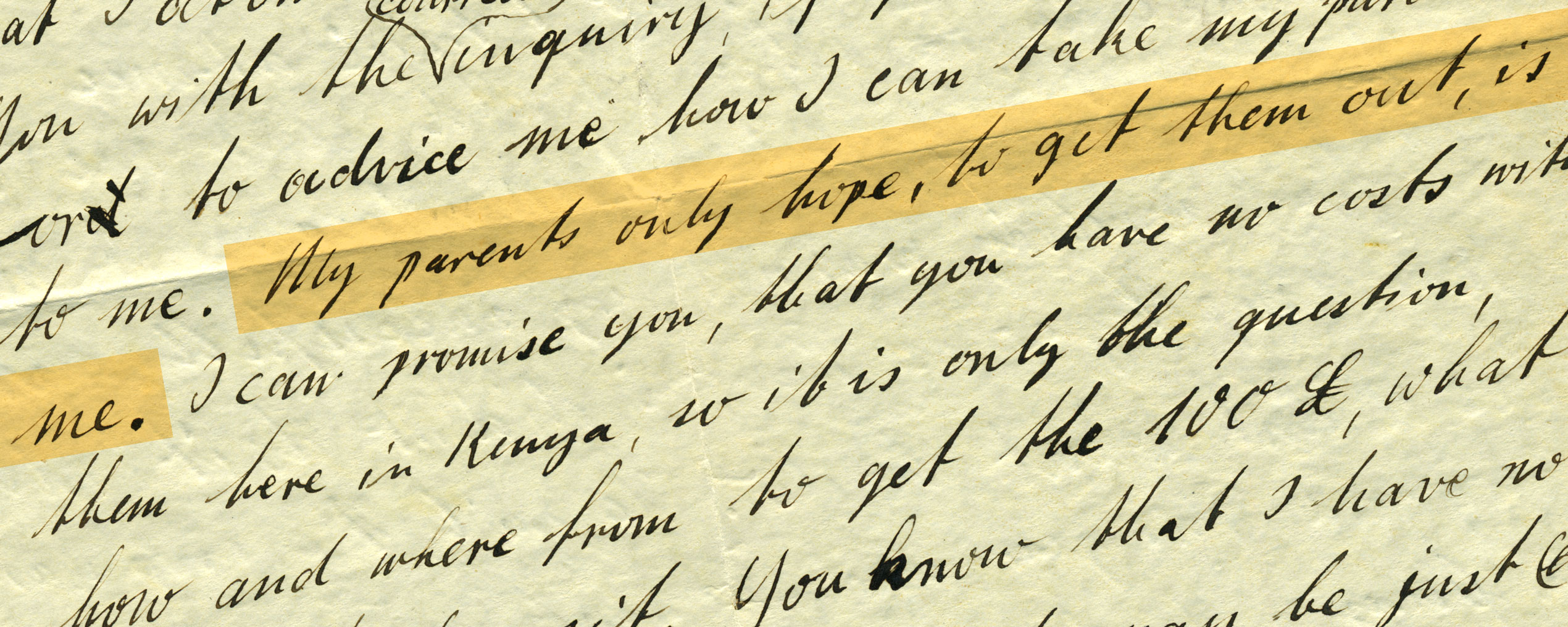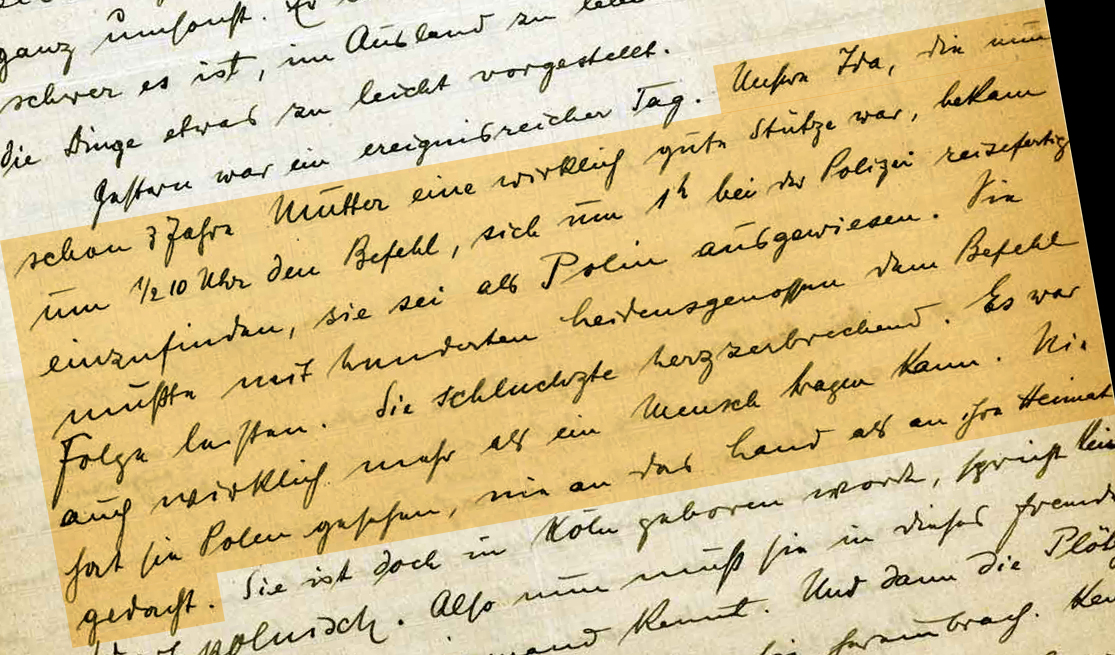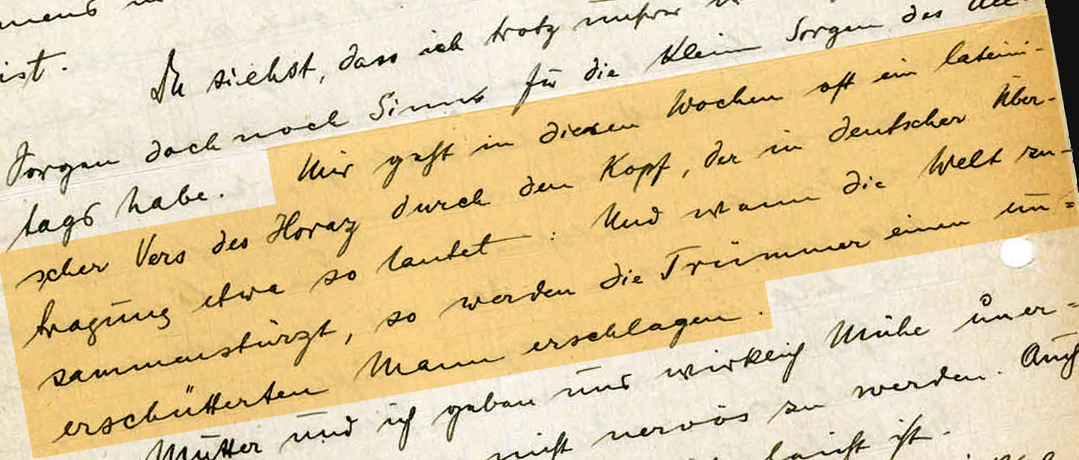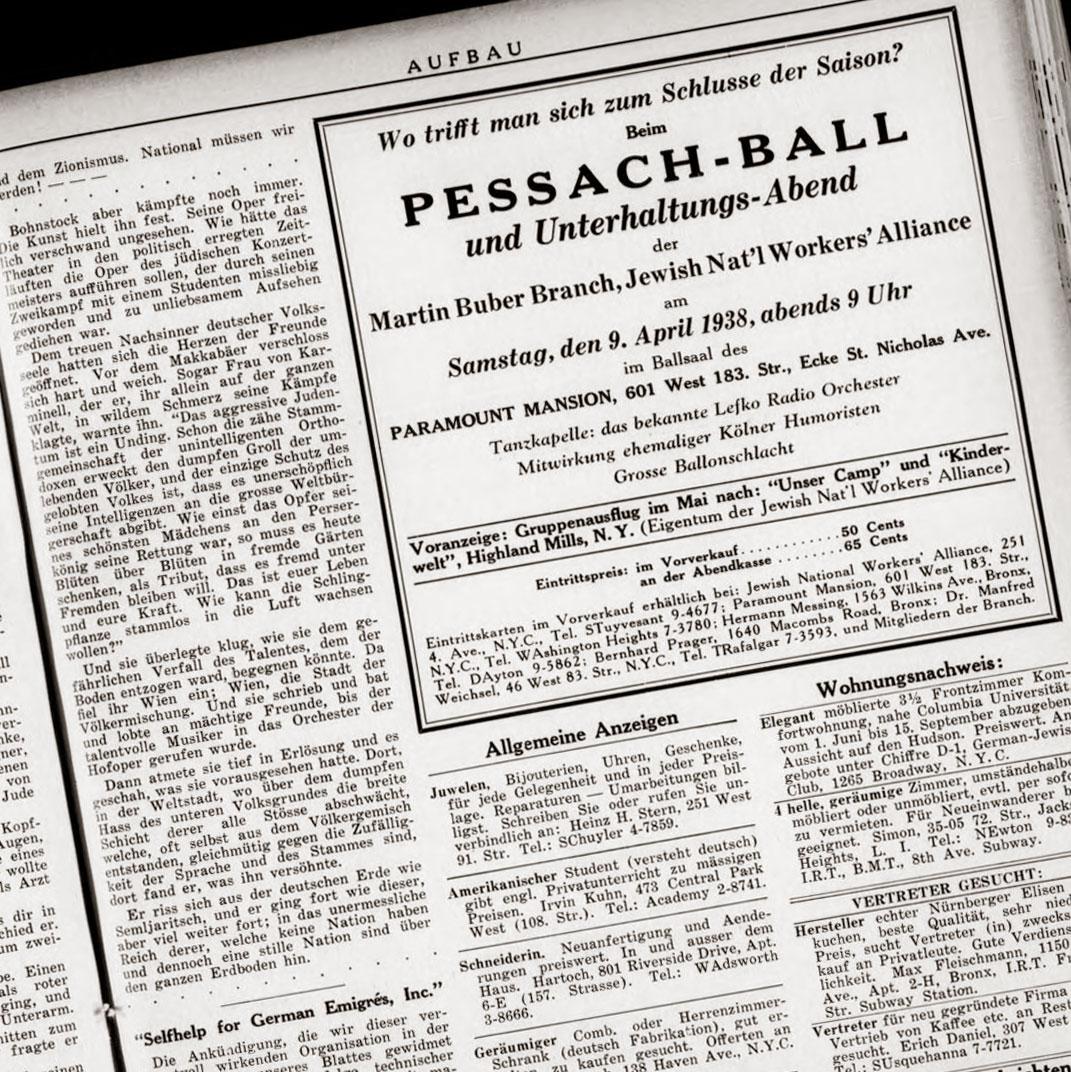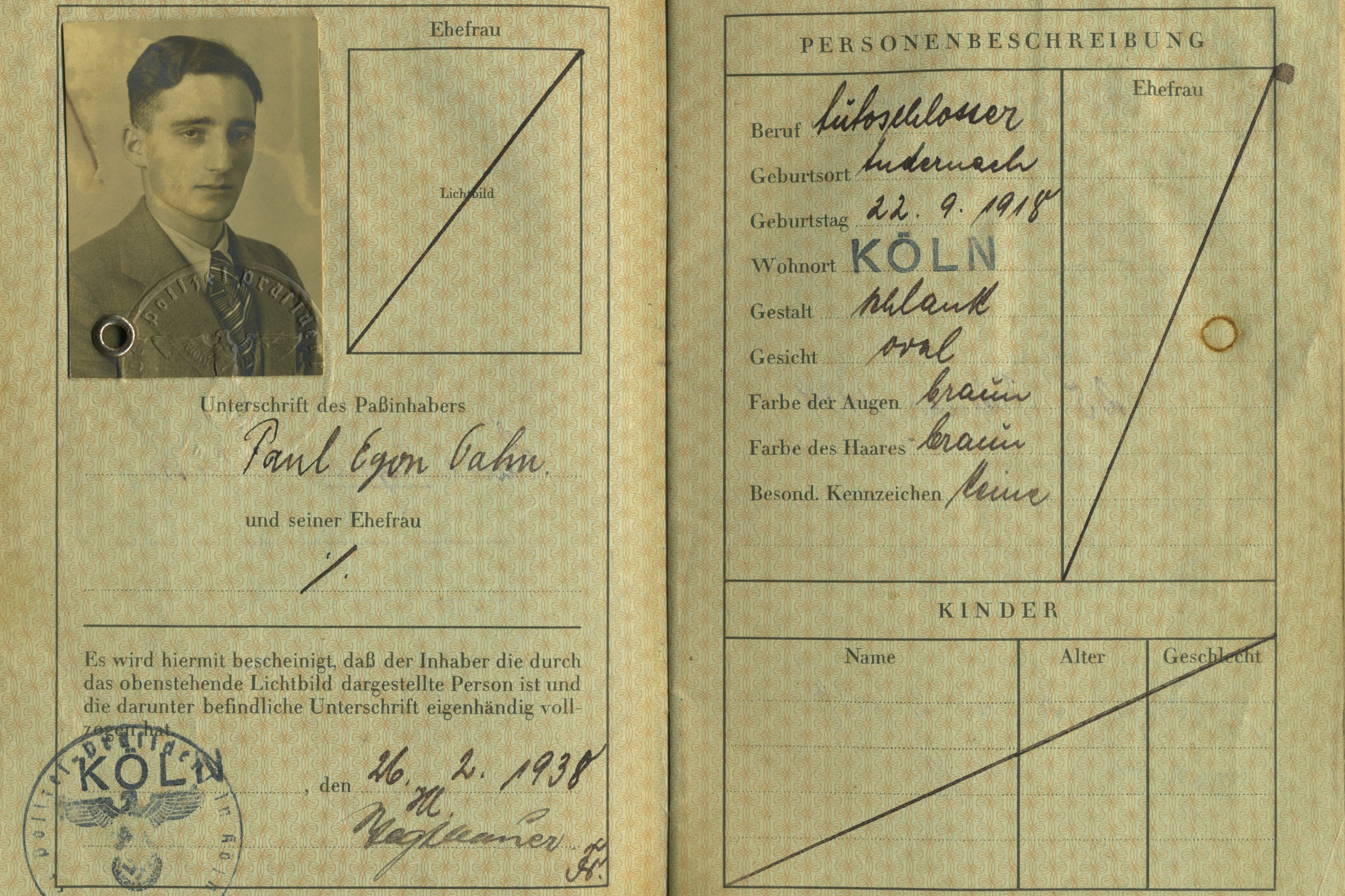Money: the make-or-break
Rescue depends on money
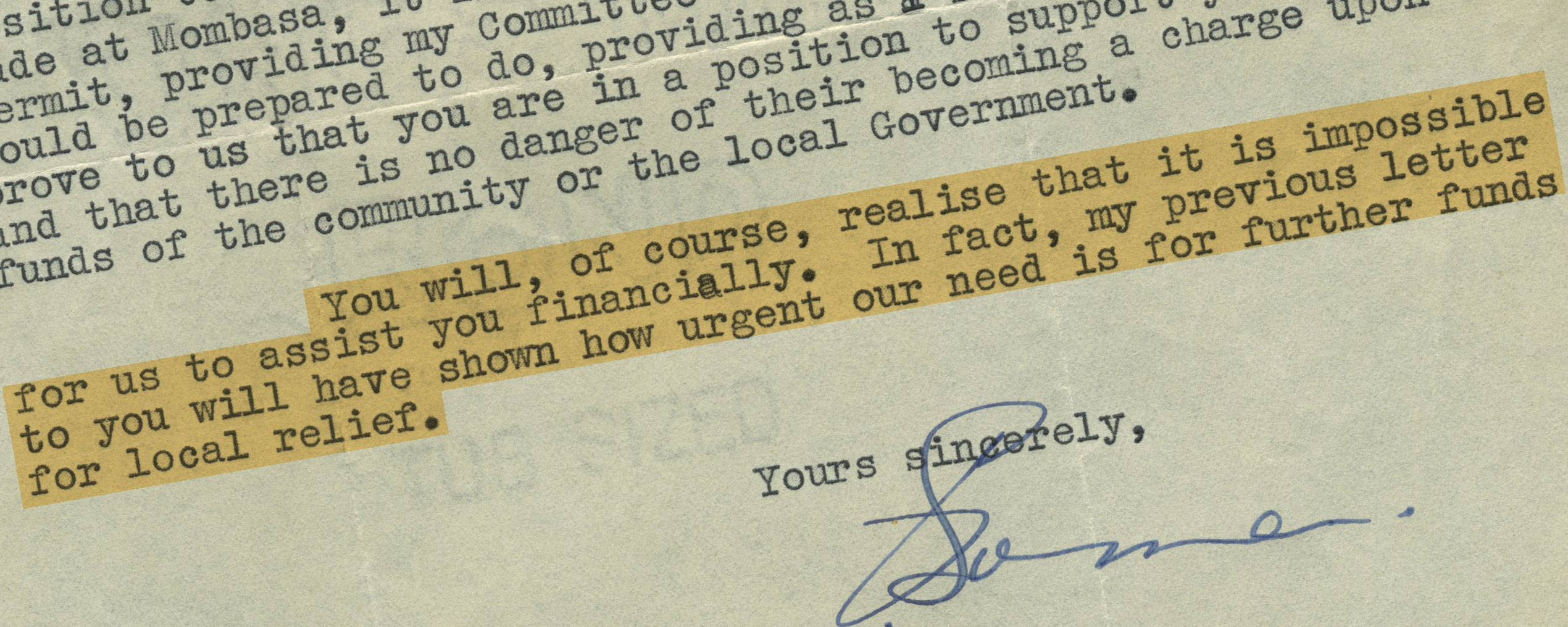
“You will, of course, realize that it is impossible for us to assist you financially. In fact, my previous letter to you will have shown how urgent our need is for further funds for local relief.”
Nairobi/Rongai
The reply of the secretary of the Kenya Jewish Refugee Committee, Israel Somen, to Paul Egon Cahn’s request for help was rather reserved: the young man urgently wished to bring his parents from Cologne to join him, but he didn’t have the £100 which were to be paid to the British Colonial Office in Mombasa for entry permits. The financial situation of the Committee was utterly strained, so that Somen could only advise the young man to submit an orderly application with the immigration board in Nairobi. In addition, he would have to furnish proof that he was able to pay for his parents’ upkeep and that he had paid the fee for the permits. Only then would it be conceivable that the authority would follow the request, provided the Refugee Committee would give him security. This, too, Somen emphasized, was contingent on Paul Egon Cahn’s ability to prove that his parents would not be a financial burden on the Committee or on the local authorities.
SOURCE
Institution:
Leo Baeck Institute – New York | Berlin 
Collection:
Paul Egon Cahn Collection, AR 25431 
Original:
Source available in English








































